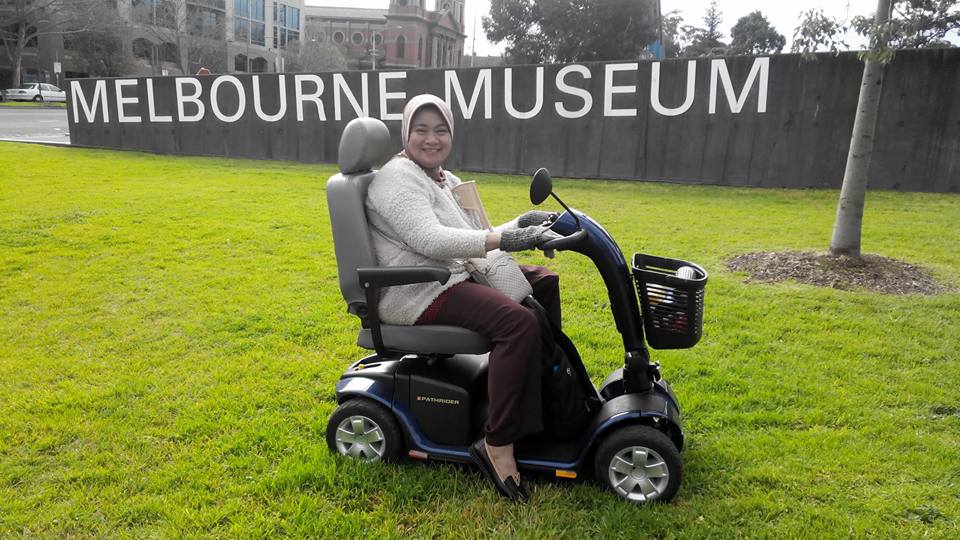Being concerned about the disabled and their various welfare issues in Indonesia, particularly Yogyakarta, a lecturer of Economic Faculty (FE) of Universitas Muhammadoyah Yogyakarta (UMY) Dr. Arni Surwani joined a-month training of mental health for the disabled in Melbourne, Australia. “Australia is one of the states that I visited to learn services for the disabled. On 1-30 August, I became the participant of training of International Mental Leadership Program,” she told in an interviewed on Thursday (26/11).
In these recent 12 years, Arni and her two friends established and worked at CIQAL (Center for Improving Qualified Activities in Life of People with Disabilities) in Trihanggo, Gamping, Sleman. “My friends, namely Suryatiningsih and Ibnu Sukaca, established this organization (CIQAL, ed.) in 2002. All of us are the disabled, and I am from UMY,” Arni informed.
She inserted that most of the disabled cannot access adequate education, and only obtains limited training. As the result, it is not surprising that the disabled in Indonesia are hard to get job. “Health of the disabled is commonly susceptible, and almost all of them cannot access health insurance,” she emphasized.
Ani also maintained that health care at puskesmas does not provide what the disabled need like physiotherapy and home care. The environment is also inaccessible and the mobility is limited so that they are hard to go everywhere. “Being active in conducting advocacy and empowerment through this DPO, I had a chance to learn how to care the disable in several countries,” she expressed.
Australian government and public care has developed. They have law to protect and fill rights of the disabled including mentally disorder people. There are three phases to manage them; those are medical management, preparation to public, and management after they back to public.
Arni stated that the training in Melbourne was organized by Ministry of Health (Kemenkes), Ministry of Social of Republic of Indonesia (Kemensos RI), the Global Cultural Mental Health Unit, and School of Population and Global Health University of Melbourne. Kemenkes (especially Directorate of Mental Health) is responsible for implementing law of mental health. The governmental regulation should be applied in the next 12 months. “The regulation will be the main priority of Ministry of Health in the next 12 months. It shows that government commits explicitly to protect human rights of anybody having mental disorder,” she asserted.
Collaboration between Kemenkes and Kemensos to develop public and care-based rehabilitation will be the foremost priority to ensure the implementation of Health Law in line with United Nation-Convention of Human Right of Person with Disabilities (UN-CRPD).
The program aims at enhancing personal capability in Kemnkes and Kemensos to apply the Law of Mental Health signed by President on 2 September 2014 and United Nation-Convention of Human Right of Person with Disabilities (CRPD) ratified by Indonesia in October 2011 (Law No.19/2011).
Arni expected that her training in Australia can become a reference for all stakeholders to provide protection and fulfillment of the disabled people’s rights, particularly mental disorder people. “UMY will launce disability study center next month, and the training obviously supports the establishment of the disability study center at UMY,” she ended.







